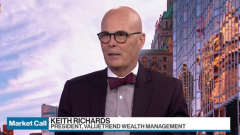Sep 27, 2023
US Yield Surge Helps Fed on Inflation, at Risk of Harder Landing
, Bloomberg News

(Bloomberg) -- The latest surge in long-term interest rates to the highest levels in 16 years adds to a lengthening list of headwinds threatening to blow the US economy off a soft-landing course.
The increase in borrowing costs puts a nascent recovery in the housing market at risk and raises the hurdle for companies seeking to fund investment. It’s also sent shudders through US equities, trimming some of the wealth gains investors have enjoyed so far this year.
The rise in rates — 10-year Treasury yields are up over a percentage point since mid-May — is one of a series of shocks buffeting what’s been a surprisingly resilient US economy. Autoworkers are on strike, the government is on the verge of a shutdown and student loan payments are resuming after a pandemic pause. Oil prices are rising, growth in Europe is stagnating and China is struggling with a property market breakdown.
“It’s becoming a series of unfortunate events,” said Diane Swonk, the chief economist at KPMG LLP. “The soft landing is being jeopardized.”
While Swonk expects the US to avoid a recessionary hard landing, she sees the expansion rate slowing sharply in the fourth quarter to a 1% annualized rate from some 4% in the current quarter, with risks to that forecast to the downside.
For Federal Reserve policymakers, however, the rise in yields may not be such a problem, and could even prove helpful. The move in the bond market hasn’t been accompanied by an increase in inflation expectations — something that would threaten to entrench outsize price increases.
That suggests the move could take some of the steam out of an economy that Fed officials have feared was running too hot. The latest leg-up in yields has come after the central bank delivered a more hawkish message than many investors expected last week even as it kept interest rates unchanged.
“If bond yields are moving higher, there’s even less need for the Fed to have to tighten further,” said Wrightson ICAP LLC chief economist Lou Crandall.
‘Downside Risk’
Not everyone is so sanguine.
MacroPolicy Perspectives LLC founder Julia Coronado said the rise in long-term rates will hurt demand for housing and autos. And it will squeeze smaller and regional banks by further devaluing their holdings of loans and bonds that bear low rates.
“It’s a downside risk,” said Coronado, a former Fed economist. “It’s going to be a headwind for the economy to absorb.”
What Bloomberg Economics Says...
“We see a growing risk of an economic contraction due to the lagged effects of monetary policy — in addition to the United Auto Workers strike and a potential government shutdown on the horizon.”
— Anna Wong, chief US economist, and colleagues
Click here to read the full report
The yield on the 10-year Treasury note reached 4.56% Tuesday afternoon in New York, the highest since October 2007.
What may be even more relevant for the economy is the yield on Treasury inflation protected securities. Yields on 10-year TIPS, known as real yields, are now approaching the inflation rate derived from comparing that yield with the yield on regular 10-year Treasuries.
When the bond market’s real yield is above the expected inflation rate, that’s an indication higher borrowing costs will have more bite — because it suggests borrowers’ revenues won’t be keeping pace.
Part of the climb in long-term yields is due to rising concern about large US budget deficits in the future, and the relative absence of buyers that used to be big purchasers of Treasuries, former Fed Governor Kevin Warsh said in a webinar last week.
The Fed, for its part, is steadily reducing its holdings of US government debt. That all may be pushing up the so-called term premium on long-term Treasuries, auguring a higher cost of capital for years to come.
The run-up in rates is already having some impact.
With higher mortgage rates continuing to push many prospective buyers out of the market, US homebuilder sentiment slumped to a five-month low this month. Home-purchase mortgage applications are hovering near the lowest readings in decades in Mortgage Bankers Association data.
Tolerance Fades
Consumer confidence slipped for the second straight month, with some respondents in the Conference Board survey voicing concern about higher rates.
Given all the headwinds hitting the economy, there’s not that much more it can take without running the risk of tipping into a recession, according to Moody’s Analytics chief economist Mark Zandi.
“I think the economy can digest 4.5% 10-year Treasury yields, but anything over 5% for more than a few months will be tough to bear,” he said.
(Updates with latest mortgage-applications data.)
©2023 Bloomberg L.P.






